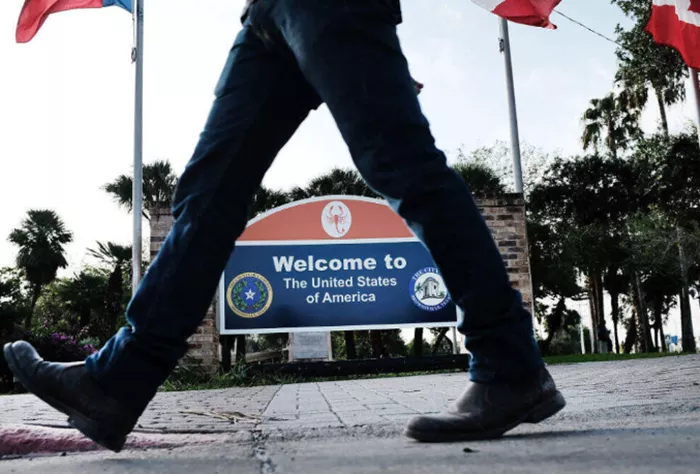President-elect Donald Trump’s proposed immigration policies could have significant economic consequences, particularly for industries reliant on immigrant labor. In Maine, agricultural producers are concerned that a crackdown on immigration may disrupt their operations, with some hoping that guest worker programs will provide a buffer. However, others worry about their employees being targeted for deportation.
At Flood Brothers Farm in Clinton, Maine, hundreds of dairy cows are tended by a team of workers, many of whom are immigrants. The farm, which produces 18,000 gallons of milk daily, employs about 50 people year-round, two-thirds of whom are immigrants.
Jenni Tilton-Flood, the farm’s owner, expressed concern over the impact of potential deportations on her staff. While she ensures her workers are legally employed, she is unsure of the specific immigration status of many employees.
“I think it would be wrong and irresponsible as an American and a business owner not to be concerned about the threat of deportation,” Tilton-Flood said.
The U.S. agricultural sector, including Maine’s, relies heavily on immigrant workers. Rebecca Shi, with the American Business Immigration Coalition, noted that the removal of a large portion of this workforce could lead to rising consumer prices, as seen during the pandemic when labor shortages caused a spike in prices.
A report from the American Immigration Council warned that mass deportations could cost the U.S. economy over $1 trillion annually, worsening the nation’s labor shortage.
Patrick Woodcock, president of the Maine State Chamber of Commerce, emphasized that immigrant labor has been crucial in sectors like agriculture, seafood processing, and manufacturing, especially as the state faces a growing labor shortage.
Woodcock also pointed to the importance of Temporary Protected Status (TPS) for immigrants from countries deemed unsafe to return to. If TPS is revoked, it could severely affect the workforce in Maine and other states.
Despite these concerns, Woodcock noted that it is too early to predict how Trump’s immigration policies will play out and impact Maine’s economy.
In Maine’s blueberry industry, which has become increasingly reliant on immigrant workers, employers like Dave Bell from Cherryfield Foods are also worried. The seasonal nature of blueberry harvesting means companies must compete for workers, making it harder to find enough labor during peak harvest times. However, Bell is optimistic that his company, which uses the H-2A guest worker visa program, will be protected from major disruptions. He pointed out that the H-2A program has remained stable across multiple administrations.
Back at Flood Brothers Farm, Tilton-Flood remains uncertain about the future. She fears that people who overlook the issue of immigration may not fully understand the potential pain and disruption it could cause to farms and families in Maine.
“I don’t think people realize the chasm and pain that might occur,” she said.
As the new administration prepares to take office, Maine’s agricultural and labor-dependent industries remain on edge, uncertain about the future of their workforce and the economic implications of potential immigration changes.
Related topics:
- Visa on Arrival for Ghana Now Available Again!
- Aussie Minister Refuses Ex-Israeli Minister Visa Over ‘Social Cohesion’ Issues
- Gov. Abbott’s Immigration Status Order Ignites Debate Over Healthcare Access


